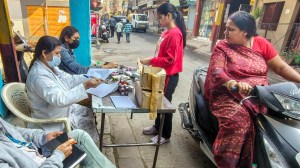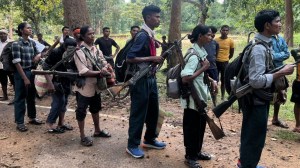Talk to the people
If the government is trying to form a political consensus on the Comprehensive Test Ban Treaty, there is little sign of it. A serious effo...

If the government is trying to form a political consensus on the Comprehensive Test Ban Treaty, there is little sign of it. A serious effort should be made to advise and win the consent of all political parties and the people at large. Foreign Minister Jaswant Singh has stated time and again and rightly so that a consensus is essential before India can accede to the treaty. Indian nuclear and security policy has always rested on a broad consensus among political parties and therefore inspired confidence in the country about those policies. But where are the consensus-building efforts which he promised would start straight after the elections?
Conspicuous by its absence is the kind of parliamentary debate which occurred when the Gowda and Gujral governments took a position against signing the CTBT during the final negotiations in Geneva. That public airing of the issues, unusual in respect of nuclear policy-making, had a positive outcome. The debates and media discussion made the CTBT a household word andbuilt strong public support for the government of the day. Nothing on those lines is taking place just now.
Does the government imagine it can whistle up a support for the CTBT at the last minute? Or is it relying perhaps on the fact that it can sign an international treaty without seeking Parliament8217;s prior approval? There is certainly a strange reluctance to say more than the absolute minimum to the public. After eight rounds the outcome of the Singh-Talbott talks is still a closely guarded secret and the public is left chewing on diplomatic non-statements. As for the government8217;s own thinking on the pros and cons of signing the CTBT, this has emerged as a series of responses to its international 8220;interlocutors8221; rather than as a dialogue with the people of India. There is a unilateral moratorium and the prime minister8217;s declaration at the UN that India will not stand in the way of the treaty coming into force. It is evident the NDA government intends to sign the treaty. Why not say so in plain words tothe people of India?
It is a mistake to take political parties within the NDA alliance and in the opposition for granted. Even though the government of the day can count at times of emergency on unquestioning support from political parties, when the crisis is over there will and must be questions which the government must make every effort to answer. As wrong-headed as the Left might appear to be in its opposition to the CTBT, the government loses nothing and gains much by countering the argument that accession to the CTBT is accession to an unequal global nuclear order. The Congress has also asked questions, relevant and rhetorical. Both should be dealt with. It has asked for reassurance from nuclear scientists and also how the government intends to further the pursuit of universal disarmament. Because the people deserve to know exactly how things stand and because the credibility of the 8220;minimum deterrent8221; itself could be jeopardised without careful management of the political process, the governmentshould be more open about its intentions.
It is in India8217;s interest to sign the CTBT; ratification can wait since there is some uncertainty about when other nuclear powers, the US, China and Russia will ratify it. If that is the government8217;s considered view, it should say so with a full statement in Parliament.
- 01
- 02
- 03
- 04
- 05































